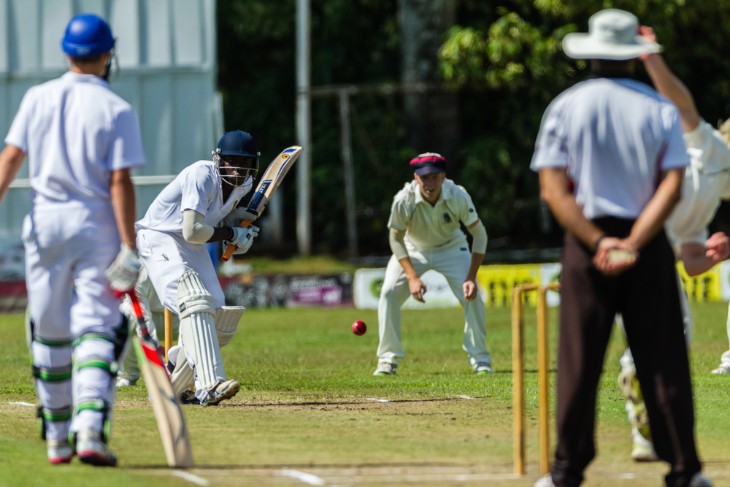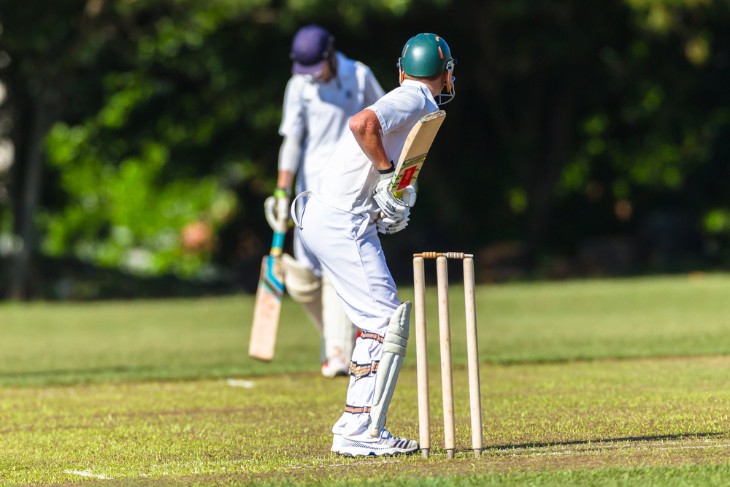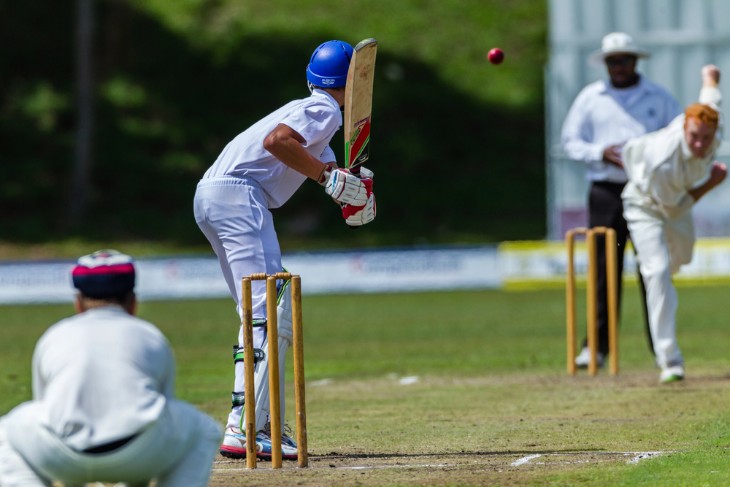- Researching Local Cricket Clubs
- The Benefits of Joining a Cricket Club
- Preparing for Club Trials and Selection
- Networking in the Cricket Community
- Financial Considerations and Membership Fees
- The Role of Coaching in Cricket Clubs
- Balancing Cricket with Personal Commitments
- Understanding Club Policies and Expectations
- Engaging with Club Activities and Events
- Conclusion
Before joining a cricket club, it is essential to assess your playing ability and understand your objectives in the sport. This self-assessment helps in selecting a club that aligns with your cricketing aspirations, whether it is casual play, improving skills, or pursuing competitive cricket.
- Skill Level: Determine your current cricketing skills. Are you a beginner needing basic coaching, an intermediate player looking to enhance specific skills, or an advanced player seeking competitive opportunities?
- Type of Cricket: Consider the form of cricket you are interested in. Are you looking for clubs that focus on traditional Test cricket, the faster-paced One Day cricket, or the dynamic Twenty20 format?
- Personal Goals: Identify what you wish to achieve by joining a club. This could range from social interaction and fitness to serious competitive play or even a potential pathway to professional cricket.
- Time Commitment: Be realistic about the time you can devote to cricket. Understanding your availability helps in choosing a club that matches your schedule, considering practice sessions, matches, and other club activities.
By thoroughly evaluating your skills and goals, you can make an informed decision about which cricket club will best suit your needs and help you achieve your cricketing objectives.
Researching Local Cricket Clubs
Selecting the right cricket club requires thorough research. Start by identifying clubs within a reasonable distance from your home or workplace. The convenience of location can significantly impact your ability to participate in club activities regularly. Utilise online resources, such as local sports directories, cricket associations' websites, and social media groups, to compile a list of nearby clubs. Pay attention to the type of cricket they focus on, the age groups they cater to, and the level of competitiveness they offer.
Once you have a list of potential clubs, delve deeper into each club's profile. Visit their websites or social media pages to gather information about their history, achievements, facilities, coaching staff, and member testimonials. If possible, attend some of their matches or training sessions. Observing a club in action offers valuable insights into their operation and atmosphere. It also provides an opportunity to interact with current members and coaches, allowing you to ask questions and gauge the club's suitability for your needs.
The Benefits of Joining a Cricket Club
Joining a cricket club comes with a host of benefits, both on and off the pitch. The structured environment and regular practice sessions contribute significantly to skill development and understanding of the game. But the advantages extend beyond just improving cricket skills.
- Skill Improvement: Regular training under experienced coaches helps refine techniques and develop new skills, essential for advancing in the sport.
- Physical Fitness: Regular cricket practice and matches contribute to overall physical fitness, improving stamina, strength, and coordination.
- Social Interaction: Cricket clubs are great places for socialising, allowing members to build friendships and networks with fellow cricket enthusiasts.
- Mental Well-being: Participating in club activities can enhance mental health by reducing stress and providing a sense of belonging and achievement.
- Competitive Opportunities: Clubs often participate in leagues and tournaments, offering members the chance to compete at various levels and potentially get noticed for higher-level opportunities.
Whether your aim is to play cricket competitively or simply enjoy the game as a recreational activity, the benefits of being part of a cricket club are substantial. The sense of community, combined with the physical and mental health advantages, makes joining a cricket club a rewarding decision for any cricket enthusiast.
Preparing for Club Trials and Selection
The process of joining a cricket club often involves participating in trials or selection processes. These trials are designed to assess your cricketing skills and determine your suitability for the club's various teams. Preparation is key to making a positive impression. Start by focusing on your fitness, as a good level of physical conditioning is essential for cricket. Engage in regular cardio exercises and strength training to improve your stamina and agility.
In addition to physical fitness, hone your cricket skills. If you are a batsman, practice different shots and work on your timing and footwork. Bowlers should focus on their line, length, and variations. Fielding drills are crucial for all players, as good fielding skills are highly valued in club cricket. If possible, seek advice from experienced players or coaches who can provide tips and feedback on your technique. Remember, the aim is to demonstrate not only your skill level but also your potential to improve and contribute to the club.

Networking in the Cricket Community
Networking within the cricket community can significantly enhance your chances of successfully joining a cricket club. Engaging with the cricket network allows you to gather insights about different clubs, understand the nuances of club cricket, and sometimes get recommendations or introductions that can be invaluable during the selection process.
Start by attending local cricket matches, seminars, and events. These gatherings are excellent opportunities to meet club members, players, and coaches. Engaging in conversations about cricket can help establish your interest and enthusiasm for the game. Social media platforms and online cricket forums are also useful for connecting with the wider cricket community. Participating in discussions, asking questions, and sharing your cricket experiences can raise your profile among cricket enthusiasts and club members. Remember, being proactive and visible in the cricket community can open doors and create opportunities that might otherwise be difficult to access.
Networking is not just about finding opportunities; it's also about building relationships and learning from others' experiences. These connections can provide support, advice, and mentorship, which are invaluable as you embark on your journey in club cricket.
Financial Considerations and Membership Fees
Joining a cricket club often involves financial commitments. Understanding and planning for these expenses is crucial for a smooth membership experience. The primary cost is the membership fee, which can vary significantly between clubs. This fee usually covers the use of facilities, club equipment, and contributes towards the club's operational costs.
Apart from membership fees, there are other expenses to consider:
- Equipment Costs: While some clubs may provide basic equipment, players often need to invest in their personal gear, including bats, balls, protective gear, and appropriate footwear.
- Travel Expenses: Participating in matches and training sessions can entail travel costs, especially if the club participates in regional leagues.
- Uniforms and Kit: Clubs may require players to purchase specific uniforms or kit, which can be an additional expense.
- Social Events: Many clubs host social events throughout the year, which may have associated costs.
Budgeting for these expenses in advance helps in managing your finances effectively and ensures a stress-free participation in club activities.
The Role of Coaching in Cricket Clubs
Coaching plays a pivotal role in cricket clubs, offering guidance, skill development, and strategic insights to players. Coaches, whether volunteers or professionals, are instrumental in shaping the playing style and ethos of the club. They provide structured training sessions, focusing on both individual skills and team tactics. For new members, coaches are often the first point of contact, helping them integrate into the club environment and understand the club's playing philosophy.
Good coaching goes beyond mere skill development. It also focuses on:
- Mental Toughness: Coaches help players develop resilience and a positive mindset, which are crucial for handling the pressures of competitive cricket.
- Strategy and Game Sense: Understanding the nuances of the game, reading match situations, and making tactical decisions are essential skills that coaches instil in players.
- Team Dynamics: Coaches foster team spirit and ensure that all players understand their roles within the team. This is essential for creating a cohesive and successful team environment.
The quality of coaching can significantly influence your experience at a cricket club. When researching potential clubs, consider the coaching staff's experience, qualifications, and coaching philosophy, as these will impact your development as a cricketer.
Balancing Cricket with Personal Commitments
Joining a cricket club requires balancing the demands of the sport with personal and professional commitments. It's essential to manage your time effectively to ensure you can participate in club activities without neglecting other important aspects of your life. Start by understanding the club's schedule, including training sessions, matches, and any additional commitments like meetings or social events. Compare this with your personal and work calendar to identify any potential conflicts.
Good time management strategies include:
- Prioritising Commitments: Determine which cricket activities are essential and which ones you can miss if necessary.
- Communicating with Employers or Family: Be open about your cricket commitments to ensure understanding and support from your employer and family.
- Effective Planning: Use a planner or digital calendar to schedule your cricket activities alongside your other commitments.
Remember, the key to balancing cricket with personal commitments is flexibility and communication. Be prepared to adjust your schedule when necessary and communicate with your club if you are unable to fulfil a commitment.

Understanding Club Policies and Expectations
Every cricket club has its own set of policies and expectations that govern its operations and member behaviour. These might include rules regarding attendance, team selection, player conduct, and club responsibilities. Understanding these guidelines is crucial for a harmonious and productive relationship with the club.
Key policies and expectations typically cover:
- Attendance and Participation: Clubs may have specific requirements for attendance at training sessions and availability for matches.
- Code of Conduct: This includes behaviour on and off the field, adherence to the club's values, and respect for coaches, officials, and fellow players.
- Financial Obligations: Be clear about your financial commitments, including membership fees, match fees, and any penalties for late payments.
Familiarising yourself with these policies helps in aligning your actions with the club's expectations, thus ensuring a smooth and enjoyable cricketing experience. Most clubs provide a handbook or a document outlining these policies. Take the time to read and understand these guidelines to avoid any misunderstandings or issues down the line.
Engaging with Club Activities and Events
Participation in club activities and events is an integral part of the cricket club experience. These activities, ranging from matches to social gatherings, offer opportunities to fully immerse yourself in the club's culture. Engaging in these events not only enhances your cricketing skills but also strengthens your bond with other club members.
Key activities and events to engage in include:
- Matches and Tournaments: Participating in these competitive events is crucial for developing your cricketing skills and gaining match experience.
- Training Sessions: Regular attendance at training sessions helps in skill improvement and demonstrates commitment to the club.
- Social Events: Clubs often host social gatherings, award ceremonies, and fundraising events which are great for building camaraderie among members.
- Volunteering: Contributing to the club's operations, whether through coaching, ground maintenance, or event organisation, can be highly rewarding and appreciated.
Active participation in these activities contributes to the club's vibrancy and can enhance your personal enjoyment of the sport. It allows for a deeper connection with teammates and a sense of belonging within the club.
Conclusion
In conclusion, joining and participating in a cricket club involves more than just playing the sport. It's about integrating into a community that shares a passion for cricket, respecting the club's policies and commitments, and balancing cricket with personal responsibilities. The journey includes financial planning for membership fees and equipment, understanding the role of coaching, and engaging in club activities and events.
Embracing the cricket club experience can be incredibly rewarding. It offers the chance to improve your cricketing skills, make lifelong friendships, and enjoy the unique camaraderie that comes with being part of a team. As you embark on this journey, remember to research thoroughly, prepare adequately, and engage wholeheartedly in the life of the club. The effort and commitment you invest in your cricket club experience will undoubtedly enrich your love for the game and provide memories and friendships that last a lifetime.


